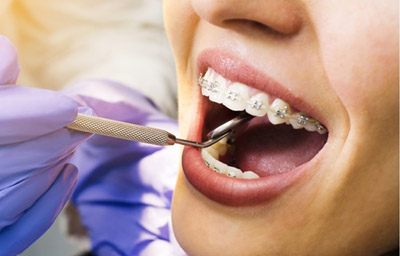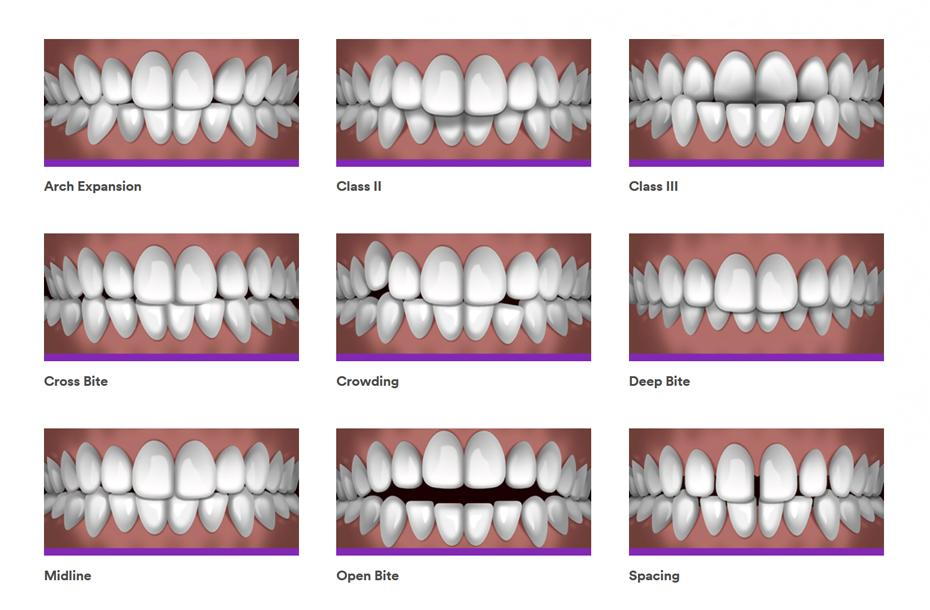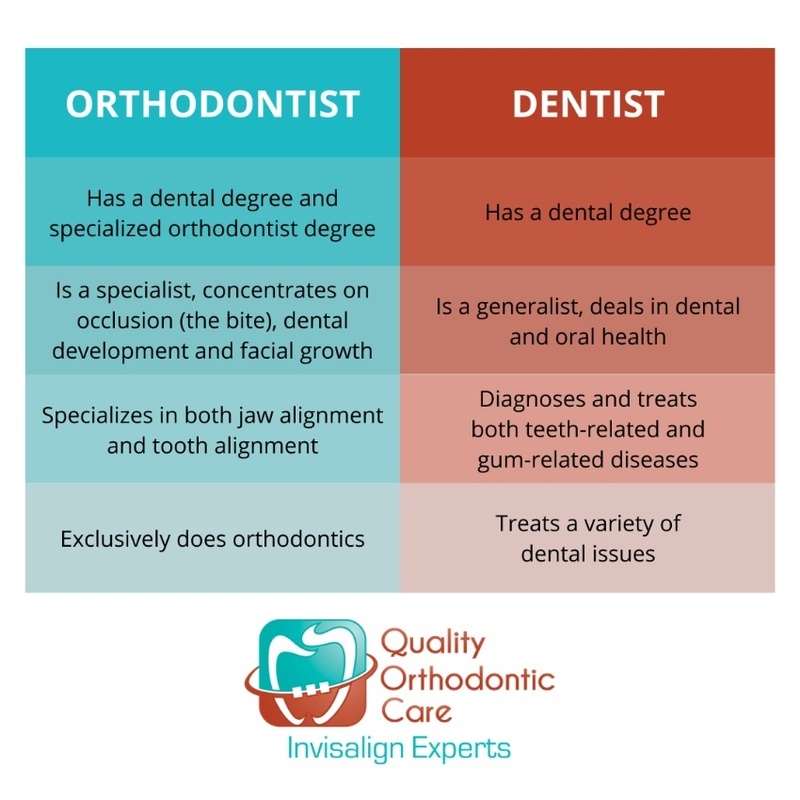The Best Strategy To Use For Causey Orthodontics
The Best Strategy To Use For Causey Orthodontics
Blog Article
Some Known Details About Causey Orthodontics
Table of ContentsWhat Does Causey Orthodontics Mean?Some Known Incorrect Statements About Causey Orthodontics Some Of Causey OrthodonticsThe Single Strategy To Use For Causey OrthodonticsNot known Incorrect Statements About Causey Orthodontics All about Causey OrthodonticsAll about Causey Orthodontics
What is the difference in between a dental expert and an orthodontist? To respond to a question that is frequently asked, both dentists and orthodontists aid individuals obtain far better oral wellness, albeit in different ways. It assists to bear in mind that dentistry is an instead broad science with different clinical expertises. All dental experts, consisting of orthodontists, treat the teeth, periodontals, jaw and nerves.
You can assume of both doctors who treat periodontal and teeth problems. The major distinction is that becoming an orthodontist needs a specific specialized in dealing with the misalignment of the teeth and jaw.
The Definitive Guide for Causey Orthodontics
An orthodontist is a dentist that has actually undertaken training to focus on the diagnosis, prevention and therapy of abnormalities in the jaw and teeth. Their training consists of correcting these existing problems. They can additionally identify possible troubles in teeth placement that may develop when conditions are left untreated. Orthodontists can help people of every ages.
This includes all the required education to end up being a basic dental practitioner. According to the American Trainee Dental Association (ASDA), it indicates you will need to have either a Doctor of Medicine in Dental Care (DMD) or a Doctor of Oral Surgery (DDS). In other words, orthodontists require to complete oral institution and afterwards obtain an orthodontics specialty education and learning.
Some orthodontists also get their masters in craniofacial biology. These programs focus on 2 certain areas or disciplines: Dentofacial Orthopedics: This research study focuses on assisting teeth and jaw development.
Get This Report about Causey Orthodontics

 These include apparatus such as dental braces, retainers and Invisalign. What does an orthodontist do, and what do they focus on? The total goal of an orthodontist is to improve an individual's bite. Not everybody is birthed with straight teeth, and an orthodontist will certainly make certain that patients get uniformly spaced straight teeth.
These include apparatus such as dental braces, retainers and Invisalign. What does an orthodontist do, and what do they focus on? The total goal of an orthodontist is to improve an individual's bite. Not everybody is birthed with straight teeth, and an orthodontist will certainly make certain that patients get uniformly spaced straight teeth.
The Definitive Guide to Causey Orthodontics
The American Association of Orthodontists advises your initial check up by age 7. You'll need to see your orthodontist if you have an imbalance in your teeth, likewise called malocclusion. Also, if you discover irregular bite patterns, a slightly askew jaw, or when your teeth are jammed, you will likely need orthodontic therapy.
At Advanced Orthodontics, we give people with a holistic treatment experience. Furthermore, we supply flexible therapy schedules, versatile repayment alternatives and an enjoyable, pleasurable experience. Telephone call ( 480) 357-4900 today for even more details and timetable a visit.
An orthodontist is a dentist trained to detect, protect against, and treat teeth and jaw irregularities. Orthodontists function with people of all ages, from youngsters to grownups (http://localbrowsed.com/directory/listingdisplay.aspx?lid=67795).
All about Causey Orthodontics
Malocclusion, or misaligned teeth, can lead to oral problems, including dental caries, gum disease, and difficult or agonizing eating. However not everyone is born with straight teeth. If you have a negative bite or big spaces between your teeth, you might wish to consult a dental professional concentrating on orthodontic care.
(Picture Credit History: DigitalVision/Getty Images) Orthodontists utilize repaired and removable oral gadgets, like dental braces, retainers, and bands, to transform the position of teeth in your mouth. Orthodontic treatment is for oral abnormalities, consisting of: Misaligned teethBite issues, like an overbite or an underbiteCrowded teeth or teeth that are too far apartJaw misalignmentThe goal of orthodontic treatment is to improve your bite.
Causey Orthodontics - Truths

All orthodontists are dental practitioners, but not all dentists are orthodontists. Orthodontic residency programs provide extensive, concentrated guideline for oral specialists. They concentrate on 2 locations: How to effectively and securely relocate teeth Just how to effectively guide development in the teeth, jaw, and faceOnce an orthodontist has actually finished training, they have the option to end up being board accredited.
Malocclusion leads to tooth overcrowding, an irregular jaw, or uneven bite patterns. Malocclusion is usually treated with: Your orthodontist connects steel, ceramic, or plastic square bonds to your teeth.
What Does Causey Orthodontics Mean?
If you have only small malocclusion, you may have the ability to make use of clear braces, called aligners, rather than conventional braces. Some individuals require a headgear to aid relocate teeth right into line with pressure from outside the mouth. After braces or aligners, you'll need to wear a retainer. A retainer is a customized device that keeps your teeth in position.
Report this page